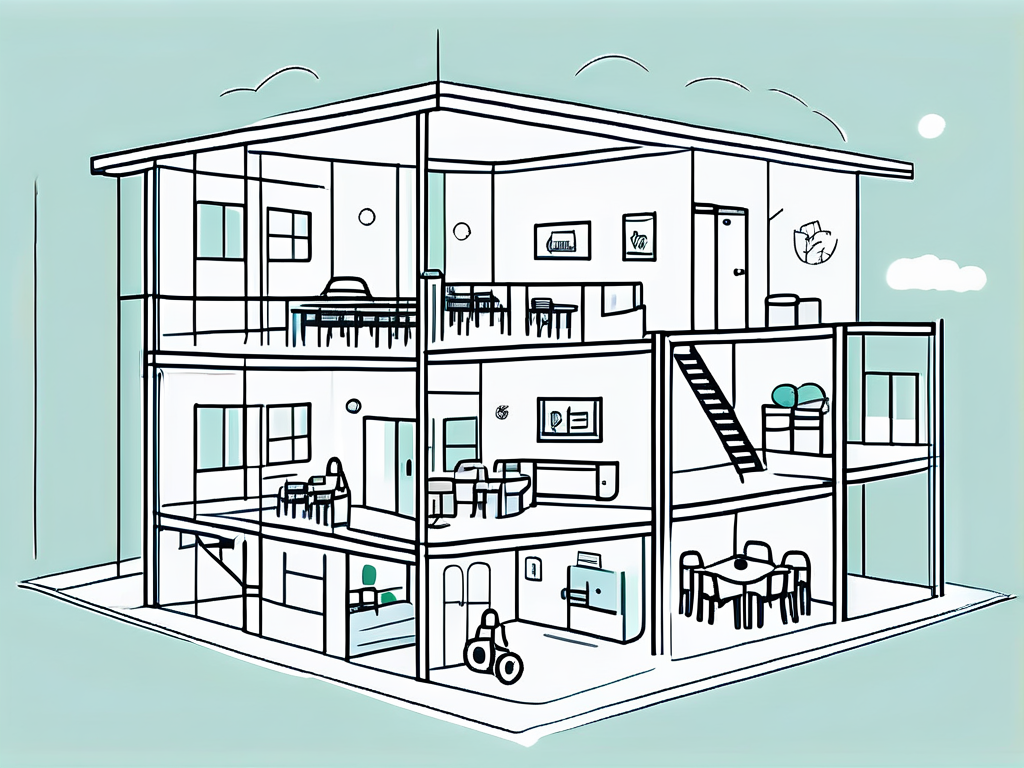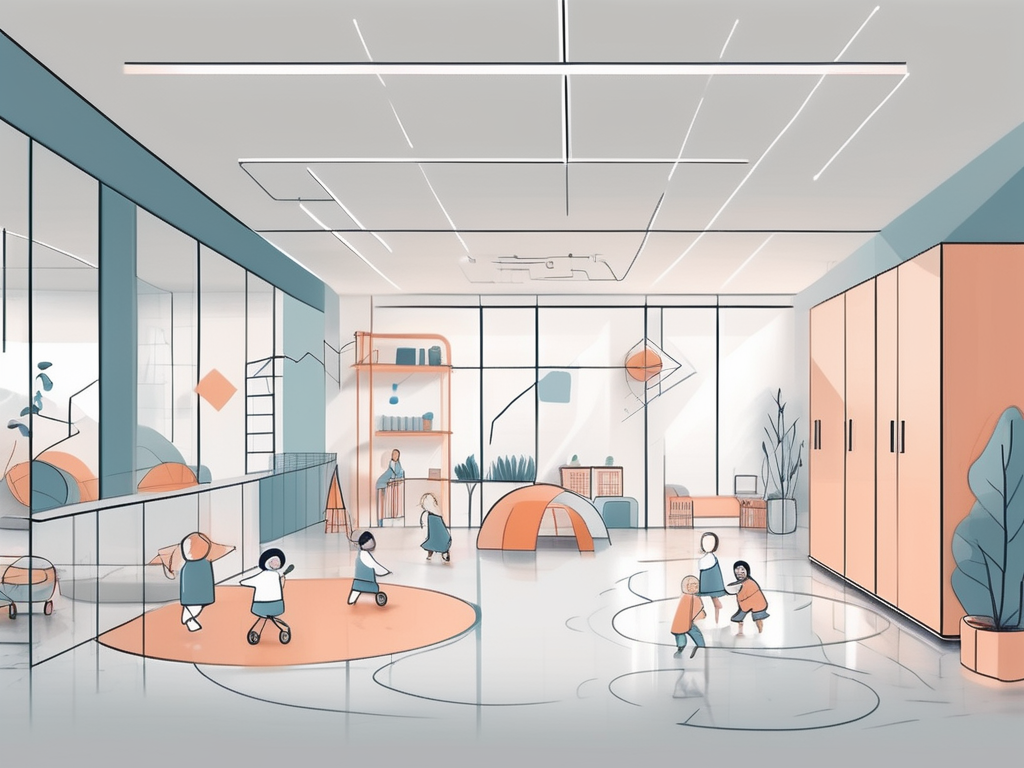In today’s competitive childcare industry, successfully managing your center is essential for providing a high-quality learning environment for children and a positive experience for parents. One tool that has proven to be a game-changer in childcare management is Procare CRM. This software solution is specifically designed to streamline administrative tasks, enhance parent-teacher communication, and improve overall efficiency. In this article, we will explore the key features of Procare CRM, the important role CRM plays in childcare management, the transformational impact it can have on childcare centers, how to successfully implement it in your center, and how to evaluate its success. We will also take a look at future trends in CRM technology and its role in shaping childcare models.
Understanding Procare CRM Management
Procare CRM is a comprehensive management system specifically designed for childcare centers. This software solution offers a wide range of features that can help streamline your center’s operations, improve communication with parents, and ultimately enhance the overall experience for both children and their families.
Key Features of Procare CRM
Procare CRM comes with a variety of features that can simplify and automate many of the administrative tasks associated with running a childcare center. Some of its key features include:
1. Child Enrollment and Records: Procare CRM allows you to efficiently manage child enrollment, maintain accurate records, and securely store important documents.
2. Scheduling and Attendance: With Procare CRM, you can easily create schedules, track attendance, and generate automated reports.
3. Billing and Payments: The software simplifies the billing process by automating invoicing, tracking payments, and generating financial reports.
4. Parent Communication: Procare CRM provides a user-friendly platform for seamless communication with parents, including email notifications, event calendars, and real-time updates.
Schedule a free 30-minutes session with us
The Role of CRM in Childcare Management
CRM, or Customer Relationship Management, plays a crucial role in childcare management. It helps centers build strong relationships with parents, improve efficiency, and enhance the overall quality of care. By utilizing CRM software like Procare CRM, childcare centers can centralize information, streamline processes, and provide personalized communication to parents.
Furthermore, Procare CRM goes beyond just managing administrative tasks. It also offers additional features that can greatly benefit childcare centers. For instance, the software includes a comprehensive reporting system that provides valuable insights into the center’s operations. With detailed reports on enrollment, attendance, and finances, center directors can make data-driven decisions to optimize their center’s performance.
In addition, Procare CRM understands the importance of security and privacy in childcare centers. The software is equipped with robust security measures to protect sensitive information, such as children’s records and payment details. With Procare CRM, you can have peace of mind knowing that your center’s data is safe and secure.
The Transformational Impact of Procare CRM on Childcare Centers
Implementing Procare CRM can have a profound impact on the daily operations and overall success of childcare centers. Here are some of the key ways in which it can transform your center:

Streamlining Administrative Tasks
Procare CRM automates many administrative tasks, such as enrollment, attendance tracking, and billing. This not only saves time but also reduces the risk of errors and improves overall efficiency. With streamlined administrative processes, childcare center staff can focus more on providing high-quality care and educational experiences for children.
Enhancing Parent-Teacher Communication
Effective communication between parents and teachers is crucial for a successful childcare center. Procare CRM provides a platform for seamless communication, allowing parents to easily receive updates, access important information, and communicate with teachers and staff. This fosters trust, engagement, and collaboration between parents and the center, ultimately benefiting the child’s overall development.
Improving Childcare Center Efficiency
Procare CRM’s features and tools improve the efficiency of childcare centers by streamlining processes, reducing paperwork, and providing valuable insights for decision-making. With automated reporting and data analysis, center directors can make informed decisions, optimize resource allocation, and continuously improve center operations.
Furthermore, Procare CRM offers additional benefits that contribute to the transformation of childcare centers. One such benefit is the ability to create personalized profiles for each child enrolled in the center. These profiles can include important information such as allergies, medical history, and individual learning goals. By having this information readily available, teachers can tailor their lesson plans and activities to meet the specific needs of each child, fostering a more personalized and effective learning experience.
In addition, Procare CRM provides a comprehensive financial management system that allows childcare centers to easily track and manage their finances. From generating invoices and tracking payments to managing expenses and generating financial reports, this feature ensures that the center’s financial operations are organized and transparent. This not only saves time but also provides a clear overview of the center’s financial health, enabling directors to make informed financial decisions and plan for the future.
Overall, the implementation of Procare CRM in childcare centers goes beyond streamlining administrative tasks and enhancing communication. It empowers centers to provide personalized care, improve financial management, and make data-driven decisions. By embracing this technology, childcare centers can truly transform their operations and create an environment that nurtures the growth and development of every child.
Implementing Procare CRM in Your Childcare Center
Successfully implementing Procare CRM requires careful planning and execution. Here are some key steps to consider:

Procare CRM is a powerful tool designed to streamline administrative tasks, enhance communication, and improve overall efficiency in childcare centers. By integrating this software into your center, you can expect to see significant improvements in staff productivity, parent communication, and overall organization.
Steps to Successful CRM Integration
Before integrating Procare CRM into your childcare center, it’s important to assess your center’s specific needs and goals. This involves identifying the administrative tasks you want to streamline, understanding the communication challenges you currently face, and determining the key areas for improvement. Once you have a clear plan in place, work with the Procare CRM team to customize the software to meet your center’s unique requirements.
Furthermore, it’s essential to involve key stakeholders in the integration process to ensure that the implementation aligns with the center’s overall objectives. By fostering collaboration between management, staff, and parents, you can create a more cohesive and efficient childcare environment.
Training Staff for CRM Adoption
Proper training and support are vital for successful CRM adoption. Ensure that all relevant staff members receive comprehensive training on using Procare CRM effectively. Provide ongoing support and encourage staff to provide feedback, identify any challenges, and share best practices with their peers. This collaborative approach will help maximize the benefits of Procare CRM within your center.
Additionally, consider implementing a mentorship program where experienced staff members can guide and support their colleagues in utilizing the CRM system. This peer-to-peer learning approach can help boost confidence and proficiency among staff members, leading to a smoother transition and increased user adoption rates.
Evaluating the Success of Procare CRM Implementation
Evaluating the success of Procare CRM implementation is essential to measure its impact and make informed decisions for continuous improvement. Here are some key performance indicators (KPIs) to consider:

Implementing a Customer Relationship Management (CRM) system like Procare can revolutionize the way childcare centers operate. By centralizing data and streamlining processes, Procare CRM aims to enhance the overall efficiency and effectiveness of managing a childcare facility. However, the true measure of success lies in the evaluation of its implementation and utilization.
Schedule a free 30-minutes session with us
Key Performance Indicators for CRM Success
Track metrics such as improved parent satisfaction, increased efficiency in administrative processes, reduced communication gaps, and enhanced financial management. Regularly review these KPIs to assess the effectiveness and identify areas for further development.
Furthermore, consider analyzing data on staff engagement with the CRM system. Are employees utilizing the platform to its full potential? Monitoring staff adoption rates and proficiency in using Procare CRM can provide valuable insights into the overall success of the implementation.
Continuous Improvement with CRM Feedback
Encourage feedback from parents, teachers, and staff regarding their experience with Procare CRM. Utilize their feedback to drive continuous improvement. Regularly communicate updates on CRM enhancements and involve stakeholders in the decision-making process. By continuously refining and optimizing Procare CRM, you can ensure its long-term success in transforming your childcare center.
Moreover, consider conducting regular training sessions to upskill employees on new features or functionalities within Procare CRM. Investing in ongoing education for staff members can lead to increased proficiency, higher user satisfaction, and ultimately, better outcomes for your childcare center. Remember, the journey towards CRM success is not a one-time event but a continuous process of learning, adapting, and evolving.
Future Trends in CRM for Childcare Centers
As technology continues to advance rapidly, the future of CRM in childcare centers looks promising. Here are some predicted developments to keep an eye on:
Predicted Developments in CRM Technology
Machine learning and artificial intelligence are expected to play a significant role in CRM technology for childcare centers. These advancements could provide personalized insights and recommendations based on data analysis, automate routine administrative tasks, and even enhance early childhood education experiences through adaptive learning systems.
The Role of CRM in Future Childcare Models
In the future, CRM is likely to be an integral component of innovative childcare models. From personalized learning plans to automated progress tracking, CRM technology will continue to shape the way childcare centers manage their operations, engage with parents, and deliver high-quality care to children.
In conclusion, Procare CRM management has the potential to revolutionize childcare center operations. By utilizing its key features, understanding the role of CRM in childcare management, and successfully implementing it in your center, you can experience a transformational impact on administrative tasks, parent-teacher communication, and overall efficiency. Evaluating the success of Procare CRM implementation, embracing continuous improvement, and staying aware of future trends in CRM technology will ensure that your childcare center remains at the forefront of the industry, delivering the best possible care to children and fostering positive relationships with parents.
Schedule a free 30-minutes session with us

